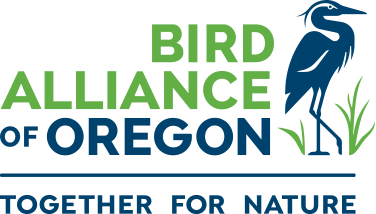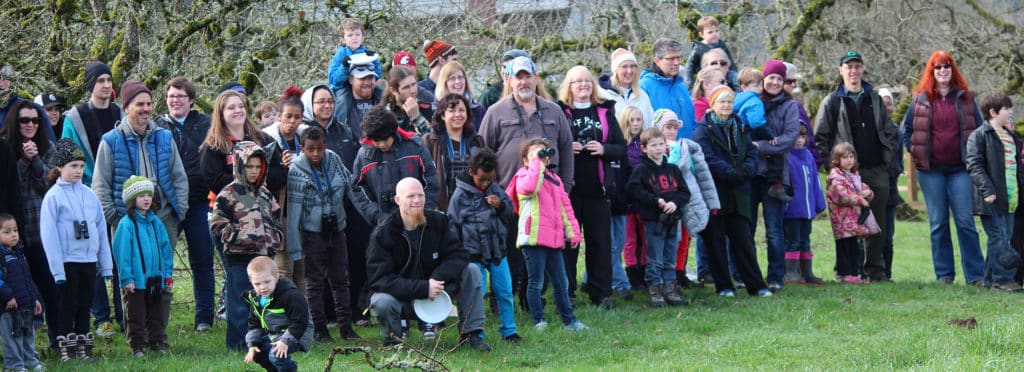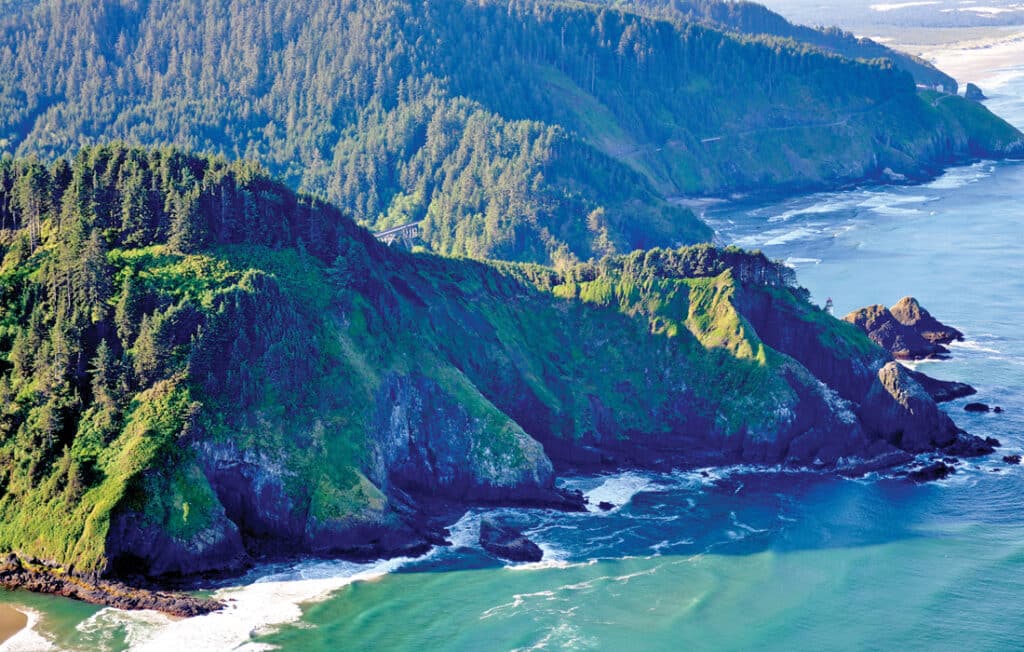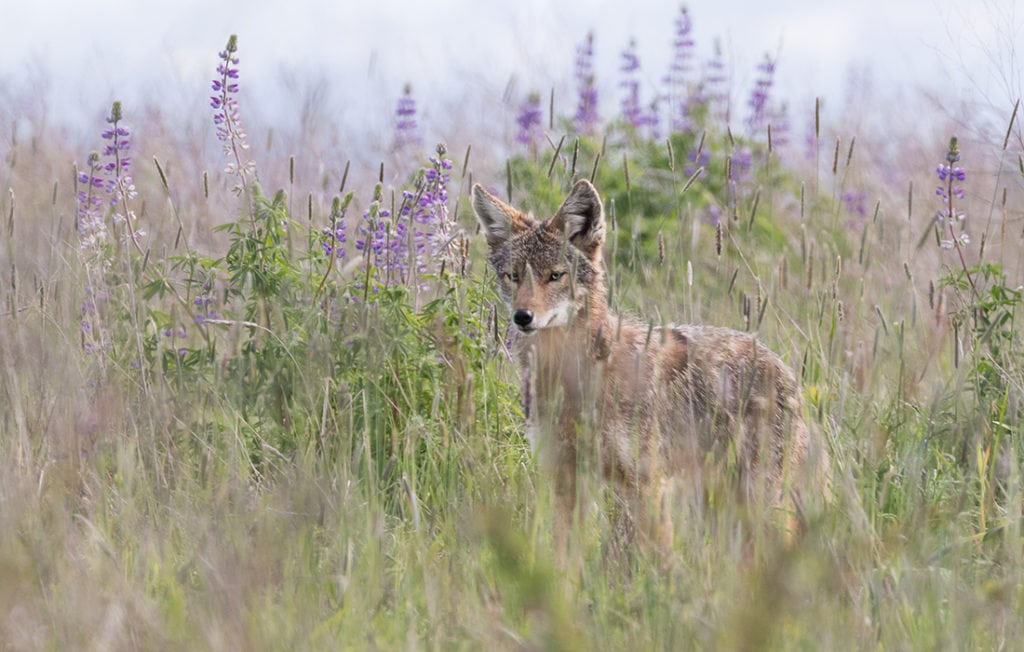
The Fish and Wildlife Commission is responsible for overseeing the Department of Fish and Wildlife and enacting rules and regulations related to Oregon’s fish, wildlife, and habitat. The department’s mission is “to protect and enhance Oregon’s fish and wildlife and their habitats for use and enjoyment by present and future generations.” Sounds like an organization that should be a good ally. Unfortunately, the department and the commission have historically prioritized consumptive uses and users of fish and wildlife, focusing on huntable and fishable species with relatively little resources devoted to non-game or imperiled wildlife.
This dynamic didn’t come about by accident. Fish and wildlife conservation funding at the state level is typically characterized as a user-pay, user-benefit model. Like most other state fish and wildlife agencies, the Oregon Department of Fish and Wildlife has historically received the majority of its funding from hunting and fishing license fees and federal excise taxes on ammo, firearms, and fishing gear. This is why hunting and fishing interests are treated (and referred to repeatedly by officials) as the primary “customers” of the agency. Though this has long been the model, participation in hunting and fishing has steadily declined, leading to significant revenue shortfalls. The department has sought substantially more general fund dollars from the public, but hasn’t made a corresponding shift to address the broad public interest in conservation.
As taxpayers, this should offend all of us. But it maybe shouldn’t surprise us.
Our system of wildlife conservation and management is rooted in our country’s colonial origins, the genocide of Indigenous peoples, and the unfettered exploitation of natural resources. It’s a system created at the turn of the 20th century by and for sport hunters—almost entirely white men—to preserve recreational opportunities after many game species were pushed to the edge (or over the edge) of extinction as a result of overhunting, habitat destruction, and deliberate extermination campaigns, including of species of cultural importance to Indigenous peoples.
It’s worth asking why we would bother reforming a system with these origins. Honestly, I’d love to sack it and start fresh. But in the meantime, because we care about protecting wildlife and habitat, it’s imperative that we understand how decisions are made and who makes those decisions.
That brings us back to the Fish and Wildlife Commission.
Within this wildly imperfect system, Bird Alliance of Oregon and our conservation partners have worked at many levels to shift dynamics at the commission and the department. This includes changing the makeup of the commission itself because the individuals appointed will determine the future of wildlife conservation in Oregon.
It may shock you to learn that there are other problems with the commission besides the continued emphasis on consumptive uses of fish and wildlife. Although it’s getting better, there has historically been very little diversity on the commission. These are unpaid, volunteer positions, meaning that service is often limited to financially secure retirees. Special interests drive commission appointments, and previous governors have taken a “one seat per interest group” approach to selecting candidates. Commissioners also often represent the very interests they are supposed to regulate, with conflicts of interest ignored. And they receive no official training to understand the department’s conservation mission or their obligation to the public.
Commissioners are appointed by the governor and confirmed by the senate. With the passage last year of HB 3086, we will have seven commissioners distributed among the state’s five river basin management districts. Commissioners must have knowledge or experience relevant to implementing the state’s wildlife policy and an understanding of the roles of federally recognized Tribes in Oregon and the relationships those Tribes have with the lands, water, and natural resources the commission governs. If you go to the state’s board and commissions website, you’ll find a handy how-to guide for applying. But once you submit an application, it disappears into the backchannels of bureaucracy. In practice, appointments are based on political connections, support or opposition from interest groups, and the vague perception of whether a person is “confirmable.”
It’s the pits, but there are things we are doing to make improvements today and into the future. We are committed to leadership development and building a bench of great candidates, including identifying and supporting informed and thoughtful candidates who care about conserving fish and wildlife and who will prioritize science and value public process.
We prioritize the appointment of people who represent Oregon’s rapidly changing demographics and who identify as Black, Indigenous, or people of color. We are working to achieve transparency around conflicts of interest and ensure that new commissioners receive adequate onboarding to understand the wide variety of interests they must represent. We also advocate for improved compensation for commissioners to enable more members of the public to serve without sacrificing necessary income.
Over time, things have slowly started to shift. We’ve had terrific conservation advocates like Greg Wolley, Kathayoon Khalil, and current chair Mary Wahl push the department to embody its broad conservation mission. Through the commission, Marbled Murrelets gained more protection under the Oregon Endangered Species Act. Cruel and inhumane trap check times were substantially reduced. The Climate and Ocean Change Policy was adopted. Many Tribes established cooperative management agreements with the department. Collaborative work on coexistence, habitat connectivity, and anti-poaching all moved forward.

Unfortunately, the interests that have long enjoyed dominance over the commission, the department, and its agenda have begun to organize to reverse this trend. We are not the only ones who understand the importance of the individuals sitting on the commission. We expect there to be a fight over the slate of appointments and reappointments this legislative session. And we are worried. In previous years, commission seats have been used as political trading stock by governors willing to throw wildlife interests under the bus to advance other policies and appease industry interests. We’ll be watchdogging the process and holding our leaders accountable.
The Fish and Wildlife Commission—and our state’s fish, wildlife, and habitat—can’t afford to go backward. Please stay tuned for how you can get involved. And if you are interested in serving on the commission, or know someone who is, please let us know!



